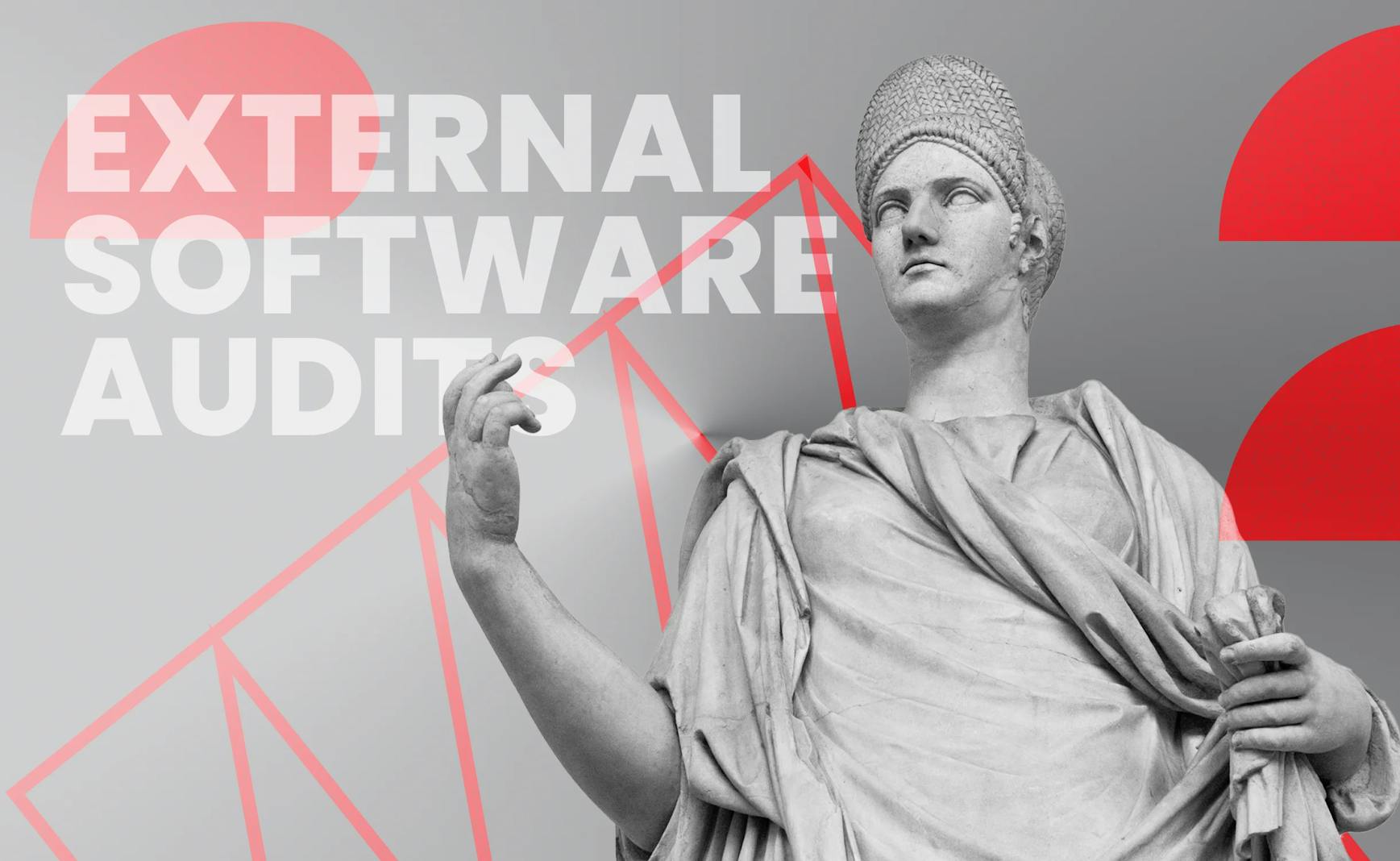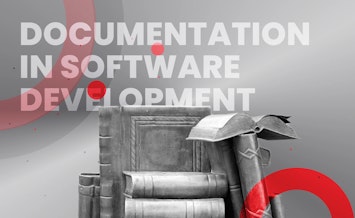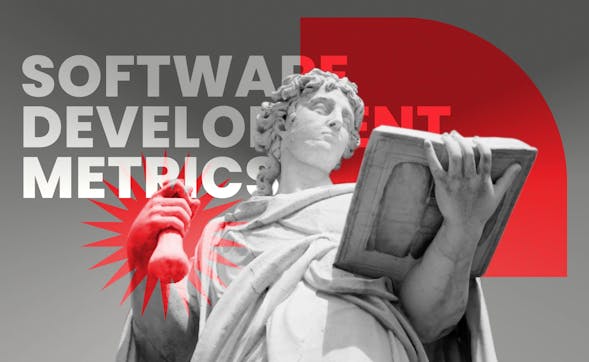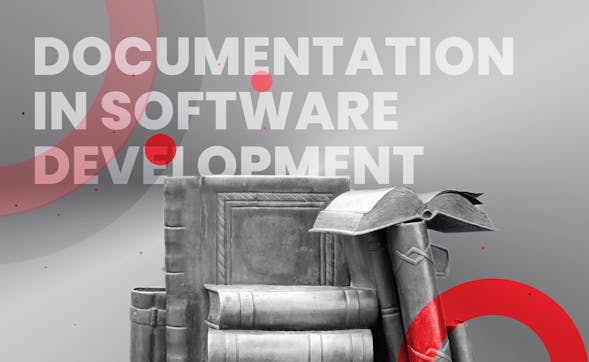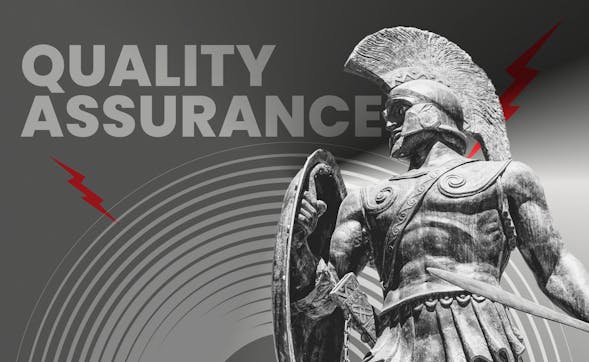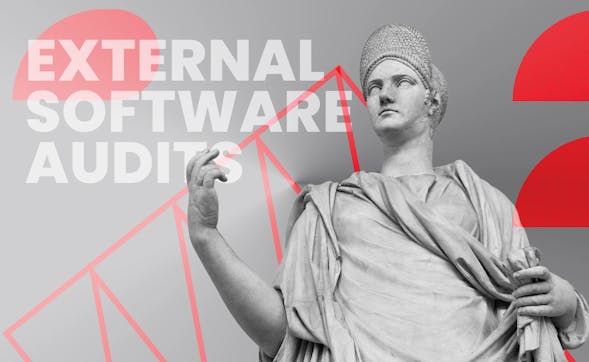Close examinations are what we regularly experience in our life—be it a health check or vehicle inspection. Just like a car, any software product also needs to be thoroughly examined to make sure it is well-functioning and secure for its user. Such an inspection is called a software audit. In this post, we explain what it means, how it should be conducted, and why it matters. Keep on reading to find valuable insights from Mad Devs.
What is meant by a software audit?
A software audit is a complete checkup of a software project or product, involving a deep analysis of its components, processes, and other aspects. This procedure can be geared toward examining either a specific part of the project or a number of aspects taken together. In a software audit, the areas of assessment can embrace:
✔ Code: A software code audit aims at checking the quality, maintainability, scalability, and many other parameters of the frontend or backend code. It’s important not to get a code audit mixed up with code review (we have a separate article dedicated to this topic). Code review is a peer activity performed mainly for a certain pull/merge request. Whereas a code audit means a broader analysis and relates to the whole software project or product.
✔ Infrastructure: An infrastructure audit is intended to evaluate the performance of a server, either physical or cloud. For example, when analysing cloud infrastructure, an audit team can scrutinize costs, check the availability of the required services, pipelines, and documentation, and analyse the use of resources. Being well-versed in Amazon Web Services (AWS), Mad Devs can carry out an audit of an AWS cloud server to optimise its infrastructure and reduce costs.
✔ Architecture: Within this procedure, an auditor can examine the components of a software system and how well they interact with each other. This includes the analysis of a cache, a database, services, microservices, integrations, and other parts of the software architecture.
✔ Integration: Software applications can be integrated with multiple components, APIs, and services, however, you can narrow your focus by checking a particular integration. For example, the Mad Devs team performed an audit of a Stripe integration several times and this gave many useful insights to business owners.
✔ Security: Carrying out an audit can help to check the product for security risks and vulnerabilities. Here, auditors are supposed to identify any potential threats, such as malware, viruses, or unauthorized access, to protect against data damage and loss.
✔ Processes: An audit can shed light on the practices, activities, and approaches established in the company in terms of the product delivery processes. An auditor might be asked to answer the following questions:
- Are all the required processes in place?
- Does everyone on the team adhere to the processes?
- Is the documentation sufficient?
- Does the team do the reporting and time tracking properly and effectively?
Depending on the company’s needs, the scope of a software audit can be much broader. Thus, compliance audits allow companies to check the conformity of their software to all applicable licenses, standards, and regulations.
Irrespective of the assessment area, the major goal of a software audit is to analyse a project, identify weaknesses, and decide on improvements that should be made to enhance the efficiency of the business.
Who performs software audits?
There are two perspectives that you can use for your software’s checkup. The first option is you can perform an audit in-house (internal audit), and alternatively, you can hire a third-party reviewer (external audit). Needless to say, it should be an acknowledged expert in the field.
External software audits come in handy when you lack in-house expertise or need an unbiased opinion and a fresh eye. In addition, engaging an external auditor may be necessary when you lack your own resources, for example, when your team is unavailable due to a high workload.
For Mad Devs, an internal software audit is a must-have activity that we carry out on a regular basis. Normally, our internal audit team includes the CTO, tech leads, software architects, and senior developers. Along with that, we engage external specialists every time we need an expert opinion and audit in an area that’s beyond our competence.
As part of the Mad Devs consulting services, we use our expertise to assist clients in auditing their code, infrastructure, architecture, app integrations, and processes.
When is a software audit needed?
Software audits may vary depending on their scope, however, they still take time and effort and should be planned well in advance. So, there are certain cases when you might need to conduct a software audit.
Project onboarding: The first software audit use case is onboarding a new team in a project. When starting a project, it’s important to get a complete grasp of the current project state with its ins and outs. This is not necessarily an in-depth investigation comprising such project aspects as licensing or regulatory compliance. But all in all, a software audit is an essential part of the onboarding process that can give a full picture of the project under development. In addition, a software audit is indispensable for a project that was previously developed by a different team and had some unresolved issues at the time of the project’s transfer to a new team.
Things go wrong: Another significant reason to perform a software audit relates to the problems that are currently occurring in the project. For example, some of the features are still not working, the team is missing the deadline, or the client is unhappy about the intermediate results. In such cases, an internal software audit can remedy the situation. By auditing a project, the team can identify and eliminate roadblocks that hinder the development process.
Regular checkups: A software audit can be carried out on a regular basis, thus becoming a company’s routine. Such audits can take place once or twice a year. For example, a delivery or project manager can initiate an internal audit to evaluate the current state of the project and make sure everything is running smoothly. However, it’s impossible to be an expert at everything, so there are cases when a company might need assistance from outside professionals. Thus, external software auditors can carry out an information security audit or check compliance with laws, regulations, and industry standards.
The how-to of a software audit
To conduct an effective software audit, you should know the mechanics. Here are the crucial steps of the software audit process that can help you to achieve the desired result.
Step 1. Set goals and expectations
First and foremost, it’s critical to determine the goals of the software audit as well as the expected results of this procedure. What is the audit team going to check? Which questions do they need to answer? Every intention and expectation should be negotiated between an auditor and an auditee and fixed in a software audit document.
Step 2. Onboarding
Then, a company that’s being audited should provide related documentation and access to the source code, infrastructure, or another part of the project that should be examined. The onboarding process should also involve meetings and discussions with the client or their representatives who are familiar with the project and can give as many details as possible.
Step 2. Auditing
Once auditors get access to the software project, they can start analysing the target components according to the checklist to see the project’s strengths and weaknesses. Depending on the area of examination, such a checklist may include logic, structure, naming, functionality, workflows, and a lot more.
Step 3. Creating audit artifacts
Upon completing the procedure, an auditor must produce a certain artifact that meets all the expectations set at the very beginning of the audit. This can be a file with test results, a large document with detailed problem descriptions and recommendations, a brief report with the list of issues found, or another artifact that was agreed upon initially. Once the artifact is prepared, the audit team presents it to the company.
Mad Devs tips to make your software audit most effective:
Set and fix clear goals and expectations
Provide as much project information and documentation as possible
Speak openly about the project without hiding its problems and pitfalls
Why are software audits important?
As said above, software audits enhance business efficiency through software optimisation. That sounds impressive, but what particular benefits stand behind this definition? Let’s consider the exact values of this procedure:
✔ Getting your software in order - An audit shows what is right and what is wrong with your software so that you could make all the necessary corrections and improvements.
✔ Anticipating problems - A software audit can pinpoint weaknesses and help to anticipate and solve problems before they happen.
✔ Digging at the roots - The roots of some issues can be quite unobvious, while an auditor can provide an in-depth analysis of the project and get to the heart of the problem.
✔ Highlighting risks - Software audits can expose a variety of risks in different parts of your software project, and knowing risks well means managing them effectively.
✔ Getting a fresh eye - By taking a fresh look at the software project, a third-party expert can find bottlenecks, which might not be visible on the inside.
✔ Saving time and money - Regular and timely software audits can stave off a lot of future problems, saving you time and costs.
✔ Improving customer retention - As a result of a software audit, you can improve the quality of your software and increase customer loyalty and retention.
A quick recap
A software audit is a close checkup of a software project, which can embrace the whole spectrum of its elements—from the source code to the processes involved in the development and management of the project.
During a software audit, reviewers can detect trouble spots and hidden problems that may threaten your business efficiency. Thus, regular audits enable companies to leverage their opportunities and deliver high-quality products to their customers and end-users.
A software audit is one of the services we provide to our clients. Mad Dev can thoroughly analyse your software project to ensure its smooth implementation and performance. As auditors, we always aim not just to find current issues but to identify all potential risks and solve problems proactively.

